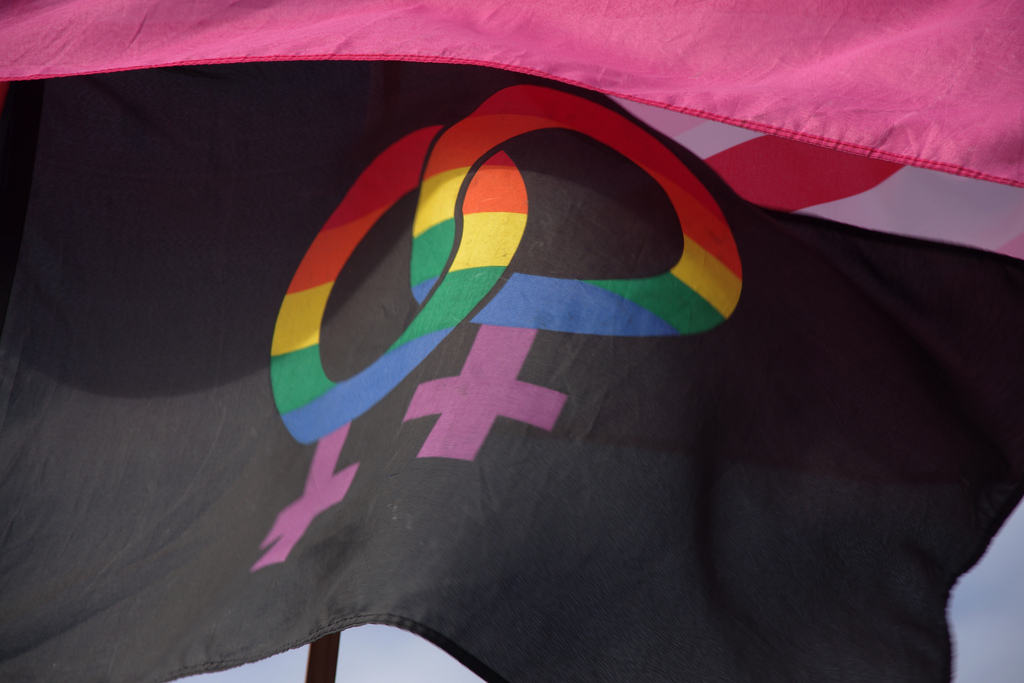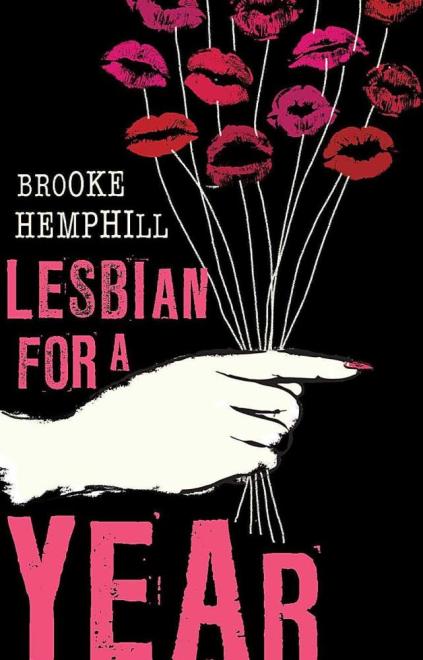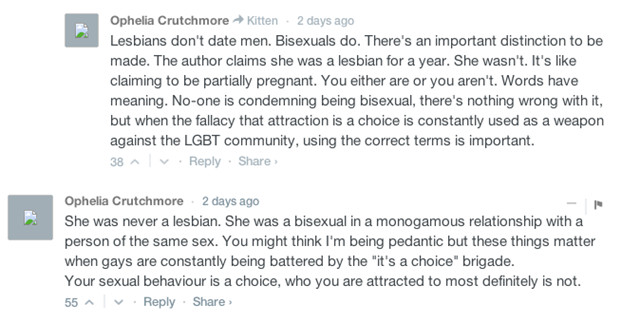This Is Why You Can’t Be Lesbian For A Year
A Sydney-based author chose to spend one year being a lesbian, and wrote an entire book about it. Are we still having this conversation?

Are you sick of dating douchebags? Relax: author Brooke Hemphill has found the perfect solution, even though it apparently defies a bunch of insignificant things like logic, the science of attraction and basic cultural sensitivity. All you need to do is temporarily change your sexual preference! Think of it like hitting the ‘restart’ button on your genitals: quick, painless, and really good at fixing inexplicable problems.

Hemphill, a Sydney-based writer and producer, has immortalised her sexuality-switching adventures in her first book, Lesbian for a Year. Yes, that’s actually what it’s called. Several years ago, after a drunken one-night stand with a woman, Hemphill felt the urge to explore her sexuality and dated only the fairer sex for the next 12 months. Somehow, this got her a book deal; unpublished writers everywhere are now weeping silently into their tins of baked beans.
Bring On The Backlash
Unsurprisingly, Hemphill’s venture has brought her a not inconsiderable amount of criticism from the LGBT community, who have taken issue with the book’s title implying that sexuality is a choice — sort of like a fancy hat you can wear until people start giving you weird looks. Commenters on Hemphill’s recent MamaMia Q&A raised pertinent points about her decision to co-opt an identity that isn’t hers. Even those who supported the book’s premise weren’t sure about its title:

Others — tellingly, not lesbians — were more forgiving:

But, as one commenter pointed out, dating women when you’ve also had relationships with men doesn’t mean you can suddenly start calling yourself a lesbian:

I’m sure Hemphill didn’t set out to hurt anyone with this book — as she pointed out in a ninemsn interview, “A lot of people out there have similar stories to mine. They have an inherent curiosity [about same-sex relationships], but because of society or family or other constraints, they don’t feel comfortable exploring it. My curiosity was there for many years, but I didn’t know how to enter a community, and it was a fortuitous series of events that put me in a position where I got to explore my sexuality”.
That’s all well and good, but if Hemphill didn’t want Marcie Bianco threatening to give her a ‘murder shower’ on Twitter, or the outrage of comments like the one below, she probably shouldn’t have said this in the Daily Mail: “I don’t want to offend anyone, but it’s a pretty catchy title”. So is ‘Never Gonna Give You Up’ by Rick Astley, but that doesn’t make the song any less excruciating.

“As predicted from the outset, people who’ve not read the book and just seen the title and have an emotional reaction to it can’t get past that,” Hemphill went on in the Daily Mail. Really? Because having read Lesbian for a Year (strictly for research purposes; I’ll never get those hours back), I beg to differ.
The book itself is a litany of unremarkable failed relationships and sexual encounters that reveal little more than Hemphill’s consistently poor emotional judgment and curious aversion to the term ‘bisexual’: she made out with several women before her so-called ‘lesbian year’, but apparently that’s not important. “I’m no carpet muncher”, she thinks at one point, after making out with a close female friend for two hours — displaying a lack of awareness so colossal it’s probably caused a tear in the fabric of reality.
Ultimately, we don’t learn anything, and neither does she: “Am I gay?” she asks at the book’s start. One year and 235 pages later, she’s still confused: “Am I gay, straight or one of those greedy bisexuals?” Way to win friends, Brooke.
Are We Really Still Doing This?
Why, in 2014, are people like Hemphill continuing to perpetuate the myth that you can choose your sexuality? More importantly, why are they being given public space to do so?
Lesbian for a Year was put out by a respected Australian publisher; it was promoted at the Melbourne Writers Festival; when I called a bookshop to ask if it was in stock, they had so many copies that I was told they wouldn’t need to reserve one for me. (They did anyway; I made my girlfriend collect it and she still hasn’t forgiven me).
This is a mainstream book that’s getting plenty of publicity, even if much of it is negative. What does its existence say about our attitudes to diverse sexualities? At a time when the science of sexual orientation is still being researched and debated, anyone with a passing interest — like, I don’t know, someone who writes a book about it — should surely care enough about the subject to approach it with the requisite levels of knowledge and sensitivity.
Labels can make identifying and understanding complex concepts like sexuality easier, but misusing or reducing them does a huge disservice to those who invest very personal meanings in the terms they use to describe themselves. Anyone who has had difficulty coming out, struggled to define their sexual identity, or endured discrimination because of it isn’t likely to have chosen any of those experiences, just as they haven’t chosen who they’re attracted to — none of us do. For someone to co-opt a word like ‘lesbian’ because it makes for a ‘catchy’ book title isn’t only disrespectful to the LGBT community; it also cheapens the memoir genre. Confessional and experiential writing can be a fascinating way to address challenging social and cultural issues, but a book like Lesbian for a Year has ‘novelty’ written all over it: the premise and its packaging are a clear bid for profits.
On the plus side, perhaps the response to Hemphill’s book is a positive sign that as a society, we’re growing less tolerant of those who oversimplify important labels. While this is often a frustrating conversation, it’s one we need to have.
In short: if you’re going to spend an entire year ‘exploring your sexuality’, that’s probably enough time to learn the correct terms for what you’re doing. Just saying.
–
Carody Culver is a Brisbane-based writer, editor and bookseller. She’s the books columnist for Killings, is Assistant Editor at Peppermint magazine, and tweets at @carodyc
Feature image by Matt Buck, under a Creative Commons license on Flickr.